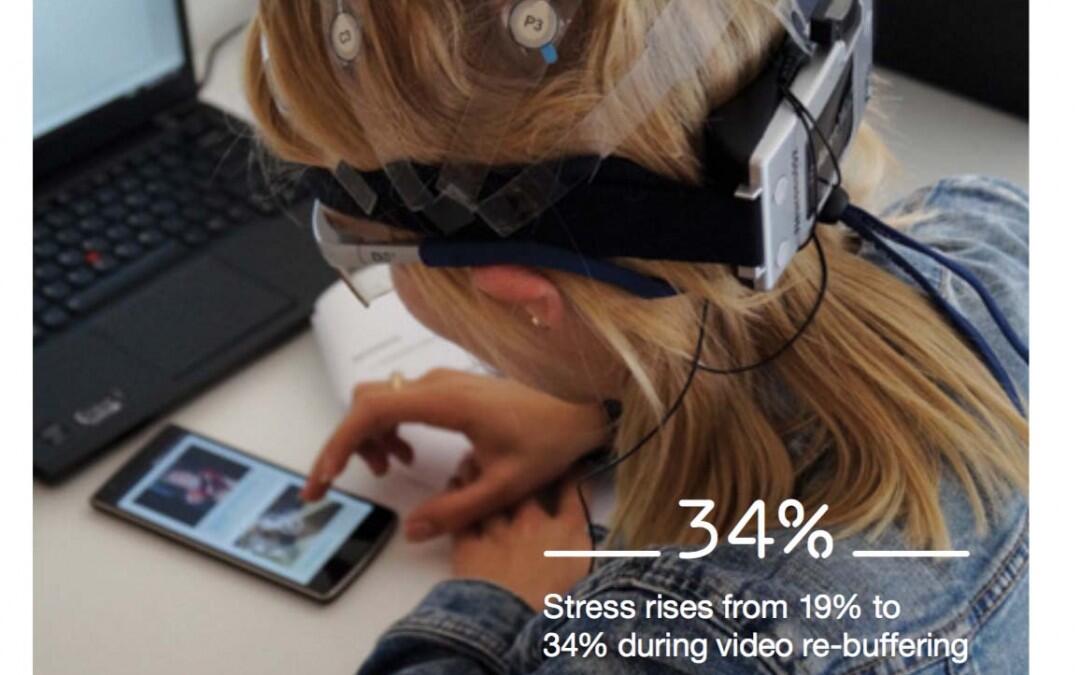Launched at the Mobile World Congress edition of the Ericsson (NASDAQ: ERIC) Mobility Report reveals the impact of different levels of network performance on smartphone users and their perceptions of mobile operators and digital content providers.
Neuroscience technology* was used to objectively measure emotional responses to varied smartphone experiences. Delays in loading web pages and videos under time pressure caused mobile users’ heart rates to rise an average of 38 percent. Six-second delays to video streaming caused stress levels to increase by a third. To put that in context, the stress incurred is equivalent to the anxiety of taking a math test or watching a horror movie alone, and greater than the stress experienced by standing at the edge of a virtual cliff. Once a video begins, an additional pause can cause stress levels to increase dramatically.
In the study, the Net Promoter Score (NPS) of an operator increased significantly when associated with a delay-free experience – by 4.5 points. This finding was also reflected when measuring emotional engagement using a neuroscience-based motivational index.
However, the operator’s NPS dropped on average four points with moderate time-to-content and re-buffering delays. Interestingly, moderate delays result in a double negative for mobile operators: decreased engagement with their brand and increased engagement with competitors.
Other highlights from the Ericsson Mobility Report – Mobile World Congress edition, include:
Social networking is second only to video for driving mobile traffic growth. Over the next six years total social networking traffic will be around 12 times that of the previous six years
68 million mobile subscriptions added in Q4 2015, India added the most (21 million), followed by China (6 million), the US (5 million), Myanmar (5 million) and Nigeria (3 million)
Total number of mobile subscriptions in Q4 2015 reached 100 percent penetration at around 7.3 billion – the same number of mobile subscriptions as people in the world
Global mobile data traffic grew 65 percent between Q4 2014 and Q4 2015
There are now one billion LTE subscriptions worldwide, with approximately 160 million additions in Q4 2015
*wireless electroencephalography (EEG) technology, pulse meters and eye-tracking equipment











